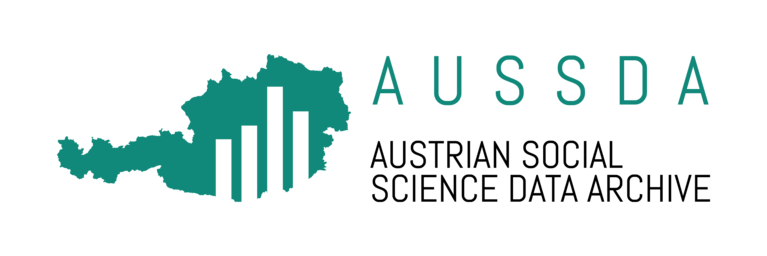Also for AUSSDA, the year 2021 was marked by the pandemic. With COSSDA (COVID-19 Social Science Data Hub Austria), following our last year's COVID-19 Data Fast Track Publishing project, we ensured the rapid and global availability of COVID-19-related social science studies from Austria. Researchers can find data from over 20 studies on the social, psychological, and economic consequences of the pandemic in our COVID-19 Pandemic Dataverse. We see data sharing as an essential key for science to develop approaches to address this crisis.
Stable and user-friendly archival software is a prerequisite for quick and easy access to data. 2021 was marked by regular upgrades of our Dataverse, which provided better performance and new features: For example, our users now benefit from a better display on mobile devices or new search functions.
Our archive has grown by 423 new entries this year. Datasets of particular interest included the COVID-19 studies such as Values in Crisis, the microcensuses of Statistics Austria, the Austrian National Election Study (AUTNES) as well as the GfK Austria archive, which we are continuously digitalising.
Moreover, AUSSDA has grown this year: We are pleased to welcome the University of Innsbruck on board. They will support AUSSDA with experimental and text data among other things.
Have you heard of our newsletter, which we launched at the beginning of this year? Every three months, we provide information about our projects, job offers and new data sets. Would you like to receive regular AUSSDA updates? Register here!
European Projects
We are actively participating in the implementation of the European Open Science Cloud (EOSC). As part of the H2020 project EOSC-Pillar, we have put a strong focus on researchers this year: In a quantitative survey as well as in qualitative interviews, we asked scientists how they reuse data and which services and tools they find helpful. In this way, we want to contribute to making EOSC particularly user-friendly. In addition, we launched the EOSC Pillar Ambassadors Programme, an initiative that invites researchers to promote EOSC and its services within scientific networks and institutions.
There was also progress within SSHOC (Social Sciences and Humanities Open Cloud), the second project funded by the European Commission we are involved in. We have taken the lead in the Data Communities work package, where members of the Social Sciences, Humanities and Heritage Sciences accompany the development of the SSH Open Cloud and identify challenges. Furthermore, we created a user guide that greatly simplifies the translation of the Dataverse user interface for numerous international users. We also actively participated in communication, dissemination and exploitation activities.
Inside AUSSDA
2021 also saw some personnel changes at our archive: we were happy to welcome some new team members. Supporting communication for EOSC-Pillar, SSHOC and AUSSDA, Marie Czuray, Andreas Villarreal and Franziska Krauss joined us this year. Theresa Kernecker drives the scientific evaluation of our EOSC-Pillar surveys. And with Karl Stöckl, a new system administrator joined our team.
We would like to thank our former colleagues who broke fresh ground in 2021 and wish them all the best.
After this eventful year, we are taking a short break: Between December 24th and January 3rd, our offices will remain closed.
The AUSSDA team wishes you relaxing holidays and a happy and healthy 2022!

